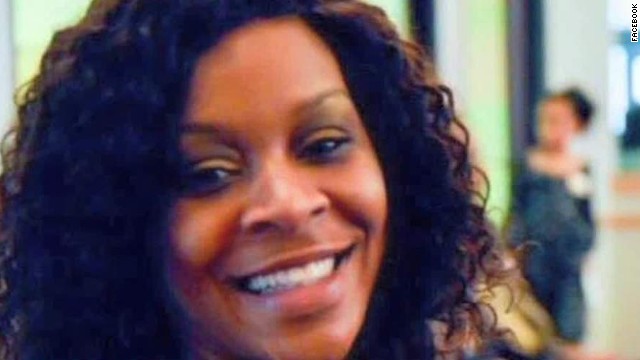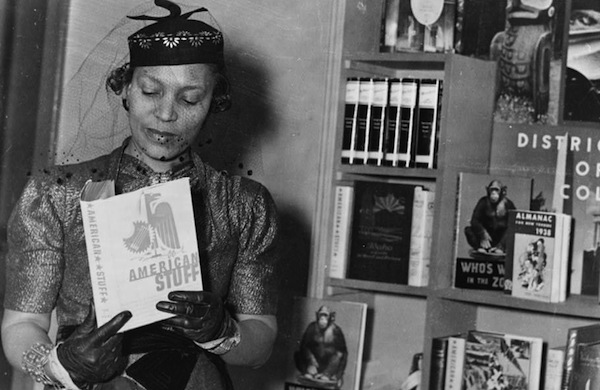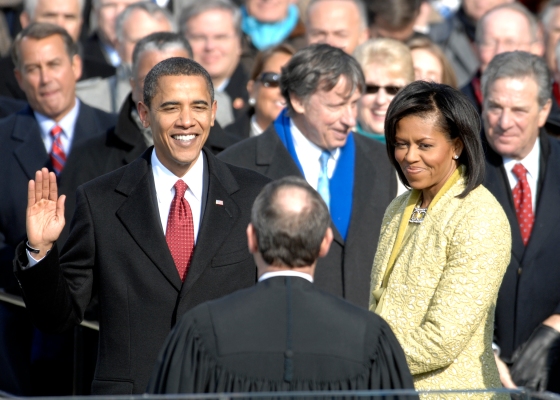
Last month, I was suddenly and suspiciously let go from my job at a local media production company in Houston. Prior to being let go, I’d been in New York City for a couple of days hoping to retrieve the last of my things left there over a year ago.
While away, I received very few email correspondences from work, but since I had planned ahead, I assumed the non-communication was because I was out of town. I didn’t sweat it; I was actually eager to return to work. We were up for mid-year reviews and recently, two exciting projects had landed on my plate. I felt as if I could finally stretch my creative legs after six months of settling in. It had not been perfect, but I worked to be a team player and give everything I could.
The day I left New York City, I spoke to a partner to update them on my return to Houston and to find out when to expect my review. I was then emailed by another partner confirming the meeting time of 8:30am. Shortly after I arrived that morning, the partner got right to it and said, “We have to lay you off .“
I felt like someone had just slapped me. A layoff was the last thing I expected, but here they were, insisting that the decision was purely financial and expressing sympathy.
I pushed back with the details of a new hire starting that week and upcoming projects that I had recently pitched and was awarded. I mentioned the conversation about job security we had during my meeting only one week earlier, where I was assured that I was fine and had nothing to worry about.
Suddenly, I was being reminded that my work wasn’t “billable” and that projects were drying up. I remembered being told that summers were usually slow. I was confused. A sudden layoff just didn’t make sense to me. I asked if there was something else going on and got nothing. “It’s financial,” they repeated.
I cried. I shook. I left. “Downsizing” was the subject line of the email I received finalizing my termination.
I was bewildered. What could have transpired in the four days of my being in New York City that would constitute a layoff? How could the company suddenly need to lay me off without my knowing? I did work in the department that handled billing. I had nothing. Eventually, I began to consider the timing of my layoff.
I live and work 45-minutes away from Waller County, the place where Sandra Bland lost her life. I know I easily could have been Sandra Bland. I’ve driven to lots of different places for work in Southern Texas. Some places where my black woman’s body would be unwelcome and potentially destroyed, had I not had whiteness around to “protect” me. I’ve always been acutely aware of this fact, but Sandra Bland’s death made me ache with it.
The day more details about Sandra Bland’s death were revealed, I was leaving for New York City, so I was not in the office. The office where I am the only person of color — ever — to have worked. The office where I had recently experienced casual racist comments from a colleague at a morning meeting. Comments that hit a personal nerve. In an email to everyone in the office, I called out those comments. Sharing how the experience affected me and how I would like to move forward. My email was responded to with non-apologies and excuses. To my knowledge, that colleague experienced no recourse for their statements. I was only assured they “didn’t mean to hurt my feelings” via an email.
Undoubtedly, my pain about Sandra Bland would have been invisible to them had I been in the office so I was grateful to not be. I expressed this amongst a series of tweets about police brutality. Given the culture of that office, I would bet (if I had the funds) they didn’t even know who Sandra Bland was that day. But they didn’t have to know who she was or what happened to her. They don’t have to care about her death. But, it sits in my chest like a bubble and swells every time I see a police car in my rearview mirror because … I could’ve been her. My mother, sisters, cousins, and friends, all could’ve been her.
 Twitter is my preferred social media in times like these. I follow well-informed, brilliant and humorous people from multiple and diverse walks of life. I am able to stay informed, share my thoughts and find connection when I can’t find it anywhere else. I purposely keep my Twitter updates private. I prefer to not have people see everything I’m sharing. Plus, it keeps the trolling to a minimum. It’s also not connected to my employment in a professional manner, so I kept it private for that reason as well.
Twitter is my preferred social media in times like these. I follow well-informed, brilliant and humorous people from multiple and diverse walks of life. I am able to stay informed, share my thoughts and find connection when I can’t find it anywhere else. I purposely keep my Twitter updates private. I prefer to not have people see everything I’m sharing. Plus, it keeps the trolling to a minimum. It’s also not connected to my employment in a professional manner, so I kept it private for that reason as well.
A tweet about white privilege and being offended by it was retweeted though, removing the usual protection filter. I didn’t care. I was too busy hurting for Sandra Bland, for Kindra Chapman, and their families and for collective blackness to care. I was too busy reeling from another black death. It was happening again: another black person gone from trivial circumstances. This time, a woman, and we know that black women’s death under any circumstances can and has been so easily forgotten. I was committed that day to saying her name: Sandra Bland.
When I began working in Houston, I knew that the experience of racism could and likely would occur on some level. While Houston is hailed for it’s diversity, the majority of the establishment in my experience here is white centered. I understood, as a free black woman, I would have to choose if that racism was “worth” challenging. Then, how would I handle that once it happened. I even stated in the office several times that I did not like casual racism or sexism, but that was when I believed what I had to say mattered at my job. I now know different.
Racial diversity is a tricky thing. If your office is homogeneously white, you have to be intentional about diversity to have it actually be successful. It requires being willing to actually confront the very thing you think diverse hiring is the solution for: privilege. In this case, white privilege. Diversity, or rather Inclusion, requires those who don’t experience race based systemic oppression or marginalization to be challenged in ways that make them uncomfortable resulting in white guilt or “white tears”. Inclusion requires setting the precedence for intolerance to racism. It means that when an employee or colleague makes an out-of-bounds statement, you are willing to correct them, and if it’s in your power, take action to eradicate the behavior immediately.
It means that you are intolerant to any microaggressions and will listen when the person of color in your office speaks up about it. You will create dialogue and action because that is what is required for true inclusion. That didn’t happen in my office on multiple occasions, but I kept working there.
The majority of the time I kept my mouth shut when it came to questionable statements in the office. I did speak up when I was asked about Patricia Arquette’s commentary at the Oscars, which turned into an all day conversation summed up by the phrase “meant well.” I spoke up when a person of color’s name was said to make them incapable of being taken seriously. I specifically addressed this, not because of its personal foul to me but because those kinds of comments have power when voiced by white bodies and implicate flagrant bias.
Maybe I should’ve never said anything. Maybe I should have kept my head low and just kept my job and let the racism go unchecked because hey, I was employed, had bills and “White folks don’t care no way.” That’s the way it is when you are the “only.” That’s the choice or so I’ve been told over and over in the wake of my layoff. It’s the choice most marginalized persons find themselves making. Accepting environments that are dismissive and most often intolerant of their pain due to financial need and/or limited options.
Your economic stability is dependent on how you operate in what could be considered a hostile environment. An environment of constant microaggressions, confusing social interactions and unapologetic cultural insensitivity. Have the nerve to challenge it on any level? You could be fired. Don’t challenge it and still end up fired because of being deemed a threat. I had the audacity to challenge it because I was led to believe this company was open to that. It wasn’t.
I’ve come to the conclusion that people of color deserve to be in a work environment where we don’t have to be silent in the face of social injustice for the comfort of others. We deserve to not live in silence and fear of losing our job if we challenge racism. We deserve culturally inclusive environments free of unchecked and often flagrant racism. We deserve to be heard so that those with privilege can understand that their oblivious indifference and unconscionable dedication to white supremacy is the very same violence that caused Sandra Bland’s death and so many others. The same people who claim to support and exalt diversity, and who claim they “don’t see color” are the same people whose silence hurts even more than my defending my right to be comfortable alone in a culturally white space. Those who insist on my silence as a means of comfort in their existence. Those whose privilege is so intertwined with my oppression, the idea of my pain never even causes a question of consciousness or a hint of human empathy. Those whose racism shows up as complicity, duplicitous and is out of integrity with who they claim to be.
Let me say this. I don’t have any evidence that my job fired me for that tweet. This is just a feeling in my gut. It seems strange to me that they would award me projects one week and then lay me off the next. That they would hire someone a week prior to letting me go. That I wasn’t hired to have billable work in the first place but now, I’m laid off because my work isn’t billable. Without warning. Without initiated compromise.
If I was laid off for those tweets on my private twitter, that would mean that someone searched for something to challenge my role there. Maybe to stop me from working on a prized project or maybe just to put me in my place. In any event, they went out of their way to inflict their privilege on my livelihood because I made them uncomfortable and refused to be silent.
Zora Neale Hurston, one of the inspirations of my free black womanhood, says “If you are silent in your pain, they will kill you and say you enjoyed it.” So I refuse to be silent. I will continue saying the names of those who have experienced physical death at the hands of white supremacy. I will continue lifting up and adding my voice with those pushing back on the very racism that will never be satisfied with our silence anyway.
 Uche Wogwugwu is a media professional and culture curator. Most known as the creator and outspoken co host of HipHopis4Lovers.com (HH4L). A weekly online radio show/podcast exploring the many platitudes of gender, sexuality and intimacy in Hip Hop. HH4L is presently on hiatus until the Fall 2015.
Uche Wogwugwu is a media professional and culture curator. Most known as the creator and outspoken co host of HipHopis4Lovers.com (HH4L). A weekly online radio show/podcast exploring the many platitudes of gender, sexuality and intimacy in Hip Hop. HH4L is presently on hiatus until the Fall 2015.







